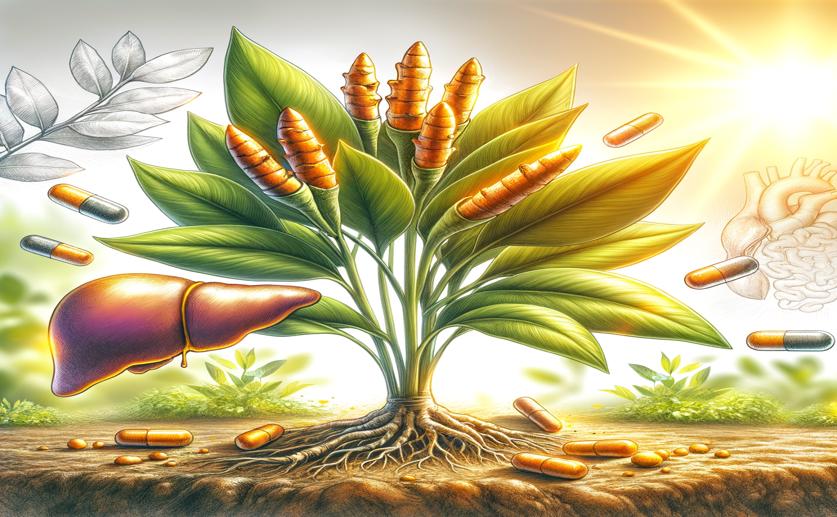
How Turmeric Can Help Protect Your Liver from Antibiotic Side Effects
Greg Howard
27th June, 2024

Image Source: Natural Science News, 2024
Key Findings
- A study in Riyadh, Saudi Arabia, found that turmeric can protect against liver damage caused by the drug metronidazole
- Turmeric treatment improved liver function and reduced inflammation and oxidative stress in rats
- Turmeric helped maintain a healthy gut microbiome, which is crucial for preventing liver damage
References
Main Study
1) The potential liver injury induced by metronidazole-provoked disturbance of gut microbiota: modulatory effect of turmeric supplementation.
Published 26th June, 2024
https://doi.org/10.1007/s00210-024-03242-0
Related Studies
2) Exploration of Maternal and Fetal Toxicity Risks for Metronidazole-Related Teratogenicity and Hepatotoxicity through an Assessment in Albino Rats.
3) Gut vascular barrier impairment leads to intestinal bacteria dissemination and colorectal cancer metastasis to liver.
4) Ameliorative effect of curcumin on lead-induced hematological and hepatorenal toxicity in a rat model.
5) Linking the gut and liver: crosstalk between regulatory T cells and mucosa-associated invariant T cells.



 15th January, 2024 | Jim Crocker
15th January, 2024 | Jim Crocker